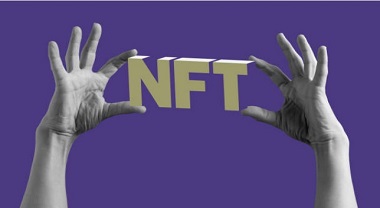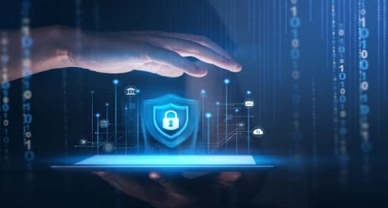The Rise of NFTs and Its Legal Complications
It is a common psychological phenomenon of humans that they tend to make benefit from something that has no inborn worth when they have adequate resources to meet their basic needs of living. The whole Art industry functions on this phenomenon. The world’s strongest economies had tumbled during the Covid-19 pandemic however, the world also witnessed a rise in the use of several commodities and activities, one of them being the exorbitant amount of money being invested into Crypto and NFTs. The NFT sale volume totalled $94.09 Million in 2021 and the same almost quadrupled in 2021 with a total sale volume of $24.8 Billion. One of the websites tracking NFT sales reported that the total number of sales made within a week varies from 15,000 to 50,000. As we transition into 2022, these skyrocketing numbers don’t seem to halt any time soon.
This paper attempts to analyse the present laws governing the trading of NFTs over the public ledger and the loopholes in those regulations that could have significant legal implications. Furthermore, it attempts to provide possible solutions to improve the governance of NFTs.

NFT stands for Non-Fungible Tokens. It is a kind of unique digital asset and the same cannot be traded or exchanged at equivalency. Crypto is fungible i.e., they can be traded; one for another however, NFTs are unique, and one can’t be equal to another. The NFT works the same way as crypto works. Cryptocurrencies operate over a public ledger system that records all the transactions happening around the globe and is updated every second, all this happens with thousands of computers working day and night without any halt. This whole process of commercially buying unique digital art in the form of non-fungible tokens is based on a public ledger called the Ethereum blockchain. Blockchain is a ledger system that works identical to banks, it records all the transactions happening across the globe on computers, however, the only difference here is that the verification and authorization of transactions do not involve any bank or middleman rather the same is done by thousands of users around the globe sitting on their computers. Doing transactions using banks is the most preferred way because of the presence of an authorized surveilling that facilitates and regulates every transaction, kept in checks and balance. The question of legitimacy also plays a pivotal role in such transactions and the absence of a proper regulatory authority may have an impact on an individual’s sense of trust. People tend to rely solely on non-human entities and complex mathematical algorithms facilitating the exchange of NFTs over the blockchain. As it was seen in the Cambridge Analytical Scandal, where Facebook exposed the data of around 87 million users of its own and same was done using a simple quiz app that allowed collection of data because of a loophole in the technological mechanism of Facebook.
For the past two years, there has been a sudden upsurge in the arena of cryptos and NFTs. The entertainment industry has utilized this opportunity to maximize its profits and fan following by using smart marketing strategies around the NFT hype. Recently the NBA started to sell out short clips of some highlights involving famous players like Lebron James. as non-fungible tokens and fans have bought the same for millions of dollars. Recently a music-band name “Kings of Leon” sold 4-lifetime golden tickets as NFTs, and they were sold for almost $441,368. The mind-boggling amount of money being spent on small JPEG collages, cat GIFs and tweets has raised concern about this whole public ledger thing and poor accountability of taxation and its legal implications.
Legal Issues around NFT:
IPR Issues:
Intellectual Property refers to the creations and inventions that are made by people using their intellect and talent. The work done by that person must be original and the same is not based on or borrowed/stolen from someone else or some other sources. When a person buys an NFT, that person is just buying the digital art/audio/video etc. but he/she is not obtaining the right to remake or reproduce the same thing that has been bought. With so much unpredictability and no binding rules regarding the same, this can lead to problems at some instances relating to Intellectual Property Rights. If a person buys an art piece in the form of NFT from an organization he/she can re-sell the same, and there won’t be an issue but if the same person tries to reproduce the same artwork, then it can lead to legal issues as it depends on the licensing terms of that organization. Also, if smart contracts are applied to the purchase of an NFT then a small amount of royalty can also be given to the original creator of that work however at present there is no such system. This means that re-selling of an NFT does not profit the creator in any way. At present, there is an absence of an effective mechanism protecting the rights of the original creator of that artwork. A possible solution for the attainment of justice to the creator is that his/her work is ought to be legally recognised. To curb this unlawful practice, every transaction happening over the blockchain involving NFTs much be accompanied by a statement expressly acknowledging his original work. In case a person or a market competitor tries to re-sell the work of the owner without adequate prior permission this would result in a breach of Intellectual Property Rights and the owner will have civil and criminal remedies under Section 55 and Section 63 of the copyright laws respectively. The evaluation of infringement is done on the parameters outlined in Sections 51 and 52 of the Copyright Act, 1957. In addition, the centralisation and standardization pertaining to general awareness and NFT netiquettes are yet to be improvised and in this million-dollar game, the very has failed to acknowledge and provide basic incentives and legislation to uphold the justice of original creators in contrast to IPR violation.
Tax Issues:
One of the primary reasons for the ongoing Sri Lankan economic crisis is the rampant and prevalent issue of tax evasion. It is an evident example in recent times that how proper implementation and execution of tax laws provide legal acknowledgement for every deed. As this article mentions about the recent sales of NFTs for million without any taxation, shows how the present system has failed and this system won’t gain confidence among the people at large. At present, there are no specific laws governing this issue; for example, if supposedly a person sitting in India using the servers of the USA executes a transaction in Canada, then the payment of tax will be according to which country’s jurisdiction remains a concern. Tax provisions of one nation contradictory to another also poses another threat about, how the perpetrator will be held liable for any wrongdoing over these platforms. The NFTs can only be bought and sold on specific platforms. According to the existing laws governing other domains of laws and even ethically, if someone makes a profit after selling NFT then he/she must pay income tax for the same. In this wide-open digital market, this law of chain is missing. The Tax laws are different for every nation, subsequently, the cess on these transactions varies, thus it can lead to problems for those having digital assets abroad. Even though the countries are working on taxation aspects of this digital asset sale and purchase there is still a lot that needs to be figured out and certain binding laws and rules should be laid out as soon as possible. A possible solution to this issue could be a formation of an International Body comprising experts of the tax and cyber laws who could work on framing rules regarding taxation of such cross-border transactions.
Money Laundering Activities:
NFTs have varying values. The price of an NFT does not depend upon the work of the creator but rather on how much one is willing to pay for that digital piece of creation. A serious concern is associated with this because one can easily misuse funds through the blockchain. After all, the only verification that needs to be made before a transaction over the blockchain is whether the user has sufficient funds in his/her wallet. One can easily set up an account by breaching the servers or hacking into them and putting up any random piece of digital art for sale and the same person can open another account on that or some other trading platform and buy that NFT up for sale by himself (from another account) and in this way, the financial mirroring can be done easily. Furthermore, the tracking mechanism can be deceived and overcome in certain ways. All this makes it very difficult for the concerned authorities to track the illegal transactions taking place over the public ledger
Data Protection and Storage Regulations:
The first world countries have vested their citizens with certain rights to change or completely erase their personal data/information. The cumbersome technology of the blockchain however makes it very difficult for the citizens of these countries to modify or erase any kind of data and any NFT carrying some sort of unwanted personal information which might be wanted to be modified or erased after some time and if the same is not possible because of this sophisticated technology then this could lead to violation of Data Protection Laws in some countries of this world. This whole blockchain works automatically through computers and not manually. Also, each NFT is connected to a digital asset via a link that enables one to know about the location of that asset. However, if somehow this whole blockchain system experiences technical irregularity that affects the link between the asset and NFT then, the NFT is of no use and the owner has no solution for the same. This all can lead to data interruption, violation of data storage regulations and enormous loss of data. Additionally, General Data Protection Regulation (GDPR) works towards providing fundamental privacy rights and there has been a constant tussle between the GDPR laws and blockchain mechanism as the former assumes that there is at least one data controller which can address the data, but the latter works with multiple players and is decentralized. Also, GDPR grants certain rights to the users like the right to erase their personal information or rectify personal data however, the blockchain principles are different as it is a shared ledger used for recording transactions and tracking assets.
CONCLUSION:
Looking at the present scenario and laws it is very evident that there is an immediate need for specific rules and regulations governing NFT transactions as they are non-fungible making them fundamentally different from Crypto even though they both operate on a similar platform. Proper acknowledgement to the creator, establishment of proper tax laws for cross-border transactions, devising methods to stop financial mirroring using NFTs and GDPR compliance are some of the issues that need to be addressed at the earliest. The recent introduction of Finance Bill 2022 and the Digital Currencies Bill 2021 and amendments brought to the Income Tax Act 1961, by the Indian government has somewhat indicated their intent with respect to the governance of digital assets. At present, one can only wait for the full-fledged implementation of these laws and expect alternative laws addressing issues and lacunae associated with NFTs.
Author: Harsh Shekhar – Student at Bharati Vidyapeeth University, in case of any queries please contact/write back to us at support@ipandlegalfilings.com or IP & Legal Filing.



